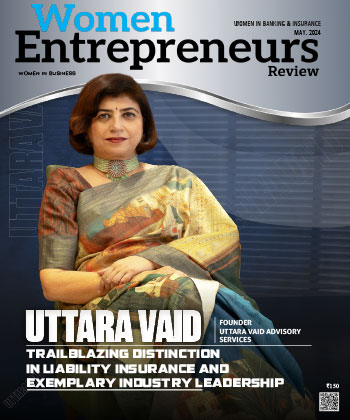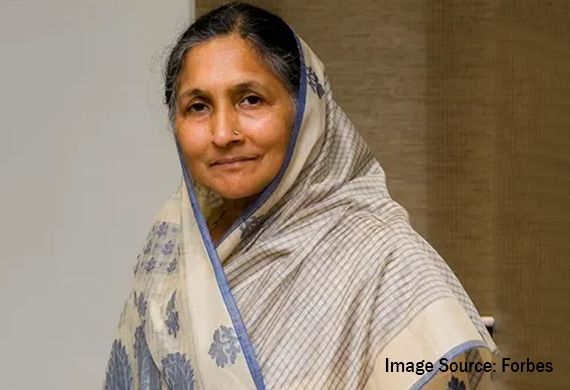
More Indian Women Taking to Investment; Showcase Discipline & Resilience as Investors
By: WE Staff
Investing is a crucial aspect of financial planning and wealth creation that has gained a lot of attention in recent times. However, in India, investing has been predominantly viewed as a male activity, leaving women out or discouraging them from participating in financial markets due to factors like inadequate understanding, lack of confidence, access, or support.
Nonetheless, the trend is changing rapidly as more and more women are taking charge of their finances and venturing into investments. “I think women have innate skill sets that are well-suited in the finance sector such as high tolerance, management and future predictions, and critical analytics skills,” says Vijay Laxmi A Ambala, a Research Analyst (SEBI Registered). Reports suggest that women investors also exhibit a higher sense of discipline, adherence to goal and perseverance. Let’s delve into some statistics that support the claim.
The Rise of Women Investors in India
According to various reports and surveys, there has been a significant increase in the number of women investors in India in the recent years. For instance, according to a report by Groww, an online investment platform, the number of women investors on its platform grew by 42% in 2023 compared to 2022. Similarly, according to a report by CAMS, a mutual fund transfer agency, the number of women investors in mutual funds increased by 27.5 lakh in the last three years.
These reports and surveys indicate that women are becoming more aware, confident, and interested in investing. They also suggest that women are not only saving but also investing their money for various goals such as retirement, education, travel, or emergencies. Some of the factors that have contributed to this trend are Increased financial literacy and education among women; Increased participation of women in the workforce and entrepreneurship; Increased availability and accessibility of online investment platforms and tools; Increased support and encouragement from family and peers and Increased exposure to success stories and role models of women investors.
The Investment Preferences of Women Investors in India
Women investors often display a greater inclination towards risk aversion and conservatism compared to their male counterparts. They tend to gravitate towards safer and simpler investment avenues, favoring options like fixed deposits, recurring deposits, or debt funds. In contrast, they often shy away from riskier and more intricate choices such as stocks, derivatives, or cryptocurrencies. According to a survey by Mint Genie, a personal finance platform, 87% of women prefer equity funds as an investment option, slightly below men at 89%.
This careful approach is complemented by their innate goal-oriented and disciplined nature. A recent survey by FinEdge found that 30.82 per cent of women prioritise retirement planning.
Women investors embark on their investment journeys with a distinct sense of purpose, coupled with a clear time horizon in mind. The FinEdge survey also concluded that women investors showcased tremendous resilience in goal-based SIP investments and had a 19 percent lower stoppage rate. They adhere steadfastly to their plans, exhibiting a proneness for saving more and spending less in order to achieve their financial objectives.
Additionally, the tendency to maintain a balanced and diversified portfolio sets women investors apart. They judiciously distribute their investments across various asset classes, sectors, and categories, a strategy aimed at minimizing risk while optimizing potential returns. This thoughtful approach also involves periodic portfolio rebalancing to uphold their preferred asset allocation.
Furthermore, women investors often exemplify a heightened sense of social responsibility and ethics. Their investment choices are informed by alignment with their personal values and principles. They exhibit a proneness for investing in companies or funds that resonate with their ethical beliefs. In doing so, they diligently consider the environmental, social, and governance aspects of their investment decisions, showcasing a holistic perspective that extends beyond mere financial gains.
The Benefits of Investing for Women
Investing offers a myriad of transformative advantages for women, encompassing financial empowerment, personal growth, and societal impact. It serves as a formidable line towards achieving financial independence and security, fostering stability through the creation of diverse income streams, wealth accumulation, and a protective shield against the vagaries of inflation and unexpected emergencies.
Beyond the finances, investing catalyzes profound personal growth. It equips women with fresh skills, knowledge, and perspectives, exposing them to an array of opportunities and challenges that contribute to their holistic development. This process further enhances self-esteem and confidence, instilling a sense of capability and accomplishment. Importantly, investing extends its influence to the societal sphere.
Women investors wield the power to effect positive change by channeling their investments toward causes and initiatives that align with their values. By doing so, they exercise a tangible impact on societal progress. Moreover, their investment journey serves as a beacon of inspiration, motivating fellow women to embark on similar paths of financial empowerment and active investment participation.
Investing is a powerful tool for women to achieve their financial goals and aspirations. It is also a rewarding journey that can enrich their lives personally and professionally. However, investing is not without its challenges and risks. Women need to overcome various barriers such as lack of awareness, confidence, access, or support that may hinder their investing potential. They also need to educate themselves about the various aspects of investing such as risk-return trade-off, asset allocation, diversification, taxation, etc. They also need to seek guidance from experts or mentors who can help them make informed decisions.
Investing is not a privilege but a right for every woman. It is time for women to take charge of their finances and become active investors. By doing so, they can not only secure their future but also contribute to the economic growth and social development of the country. Women are not only savers but also investors. They deserve respect, recognition, and support from the society.






